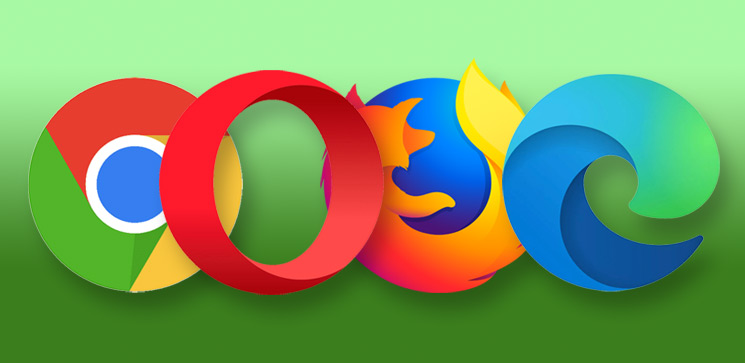Your browser acts as a gateway to the internet. It is, therefore, extremely necessary for it to have the required speed, privacy, security, and utility features. Some of the popular browsers have been criticized today for their data breaches and privacy-related issues. It is the right of users to expect a high level of data protection and privacy from their browser.
The least you can expect from a browser is some version of private browsing mode. When you’re using this mode, your browsing and search histories are not saved by the browser. We’ve listed some of the top browsers in use today and their best features here:
1. Chrome
Chrome is the most popular web browser across the world and for some good reasons. It allows the integration of Google account and extensions. Chrome also has a suite of reliable mobile applications. One of its best features is mobile integration, which makes browsing between multiple devices highly convenient.
The password manager of Chrome automatically generates and recommends strong passwords. This happens when you’re creating a new account on a webpage. This web browser also has a Dark Mode for MacOS and Windows. The only downside would be the fact that it consumes more memory.
2. Mozilla Firefox
This web browser offers a modern way to surf from one website to another. It has been made possible owing to its upgrade to Firefox Quantum. Additionally, there’s Firefox Reality, which is its alternative based on virtual reality and password-free browsing. In recent times, Mozilla rebuilt the interface of Firefox. As a result, you have Firefox Quantum.
It is designed to leverage multicore processors in ways that none of its competitors is able to match. Firefox has also offered better privacy protections with the more recent updates. It has been made possible with SmartBlock anti-tracker support, Protections Dashboard, and other features.
3. Opera
Much of the DNA of Chrome is shared by this web browser. Both Chrome and Opera have been built on the open-source Chromium engine. This makes their user experiences quite similar. Just like Chrome, Opera features a hybrid search bar and is fast and light. The differences like in the built-in features. Chrome relies more on an extension ecosystem for functionality.
In this regard, Opera provides a few more features. The browser has introduced a predictive website preload ability. Opera’s Instant Search feature isolates search results in a separate window while the current page goes into the background. This lets you focus more on the search task at hand.
4. Microsoft Edge
Launched on the 5th of February 2020, Microsoft Edge was rewritten using the open-source Chromium web browser engine. The new browser was launched by Microsoft as a separate, stand-alone browser. It replaced the integrated version and became a part of Windows 10 with the update of May 2020. Edge has a look and feels that’s quite similar to Chrome.
It will prompt you to import the bookmarks toolbar and other Chrome settings. Edge also supports the extensions of Chrome, although it would lead you to add-ons to the Microsoft Store. The features of Edge launching throughout 2021 would include some additional features.


